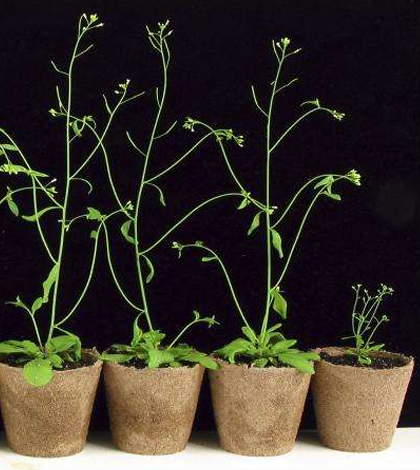U. Nebraska Team Works To Make Plants More Resilient To Drought

The double mutant plant has stunted development compared to plants with either one or no mutated genes. (Credit: University of Nebraska-Lincoln)
The problem of drought is becoming ever more present in Americans’ daily lives, but how are the plants responding to it? Scientists at the University of Nebraska-Lincoln have studied how some plants may be turning off their defense mechanisms against drought-like conditions, according to a release.
The team studied Arabidopsis thaliana, a common plant used in research, to look at how it turns off its defenses and then genetically mutated two different genes in an effort to help it battle drought. However, the mutated plants were unsuccessful. They were even more susceptible to drought, wilted faster and died quicker than the ones that were not mutated.
The team believes that the non-mutated Arabidopsis has a process in which it releases higher levels of phosphorylated histones when experiencing drought. But, when the plant was mutated, it lacked this process, and performed even worse.
The research does not end here. The team at UNL is determined to expand on their research by finding a way to make plants more resilient.
Top image: The double mutant plant has stunted development compared to plants with either one or no mutated genes. (Credit: University of Nebraska-Lincoln)











0 comments